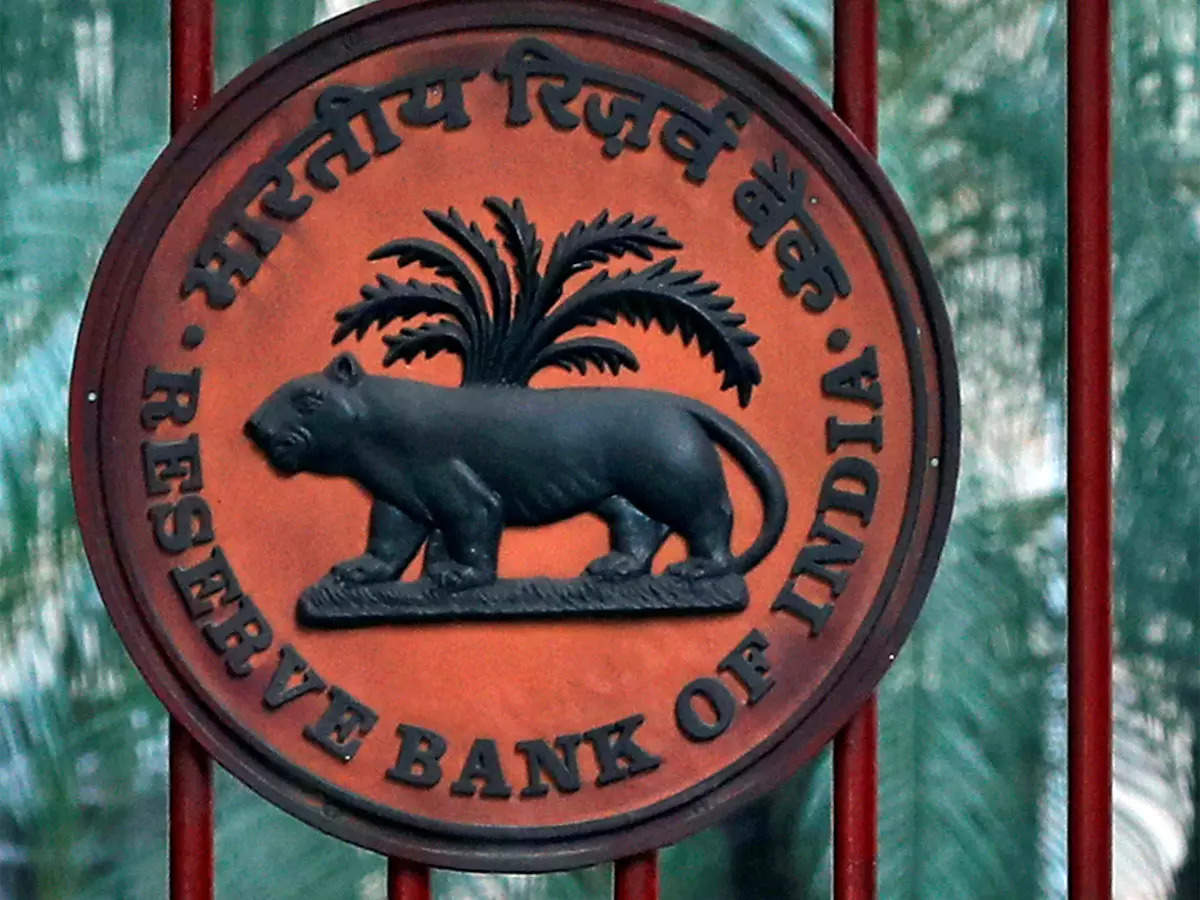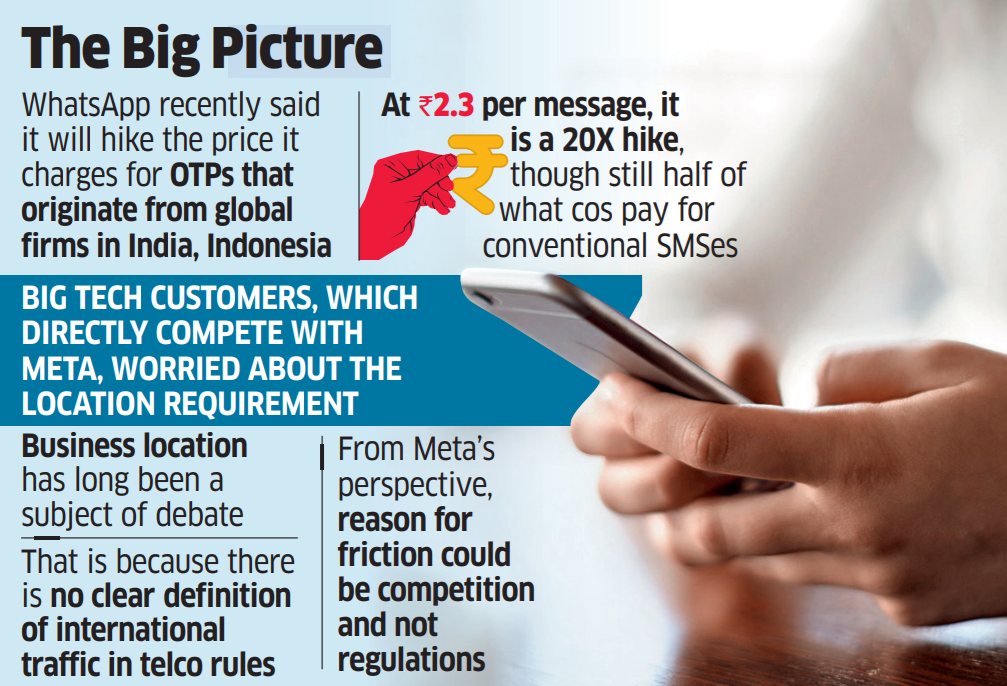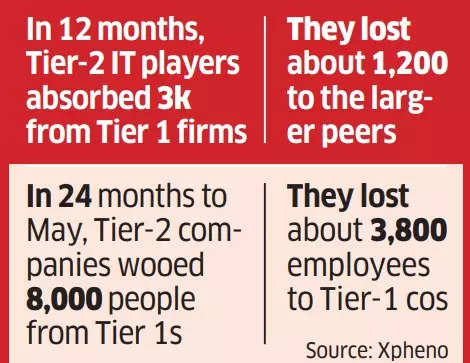


Also in this letter:
■ RBI’s new tool against cyber frauds
■ Global firms ditch WhatsApp for SMS
■ Midcap IT firms poach senior firms’ talent
HSBC has marked down the valuation of Elastic Run to $800 million
Sandeep Deshmukh, cofounder and CEO, Elastic Run
HSBC has nearly halved its valuation estimates for B2B ecommerce firm Elastic Run to $800 million, pulling it under the $1-billion ‘unicorn’ mark.
Driving the news: The SoftBank and Prosus-backed company was last valued at $1.5 billion in 2022 following a $300-million funding round.
Brokerages periodically review these estimates, similar to institutional funds that invest in startups.
Tell me more: In its note dated May 21, HSBC also lowered its valuation estimate for ecommerce company Meesho by 14% to $2.5 billion, and that of agritech firm Dehaat by 11% to $400 million.
However, ET had reported that Meesho is in the middle of a $600-million funding round, including primary and secondary share sale, expected to propel its valuation to up to $4 billion.
Recap: ET reported late Thursday, citing the same HSBC note, that Dutch-listed technology investment firm Prosus’ nearly 10% stake in Byju’s has no value, alluding to a deepening cash crunch and legal battles at the troubled Indian edtech firm.
Also read: Udaan valuation dives to $1.8 billion in down round
Hero MotoCorp pumps Rs 124 crore into Ather Energy, valuation up 20%

Tarun Mehta, cofounder and CEO, Ather Energy
Two-wheeler maker Hero MotoCorp has invested Rs 124 crore for an additional 2.2% stake in electric scooter maker Ather Energy.
Doubling down: The largest shareholder in Ather Energy, Hero MotoCorp now holds close to 40% stake in the firm. Hero did not disclose which investor it purchased the shareholding from.
The latest funding happened at an inferred valuation of Rs 5,636 crore, a premium to the Rs 4,666 crore at which Hero MotoCorp had invested Rs 140 crore in the firm in December last year.
Financial report card: In the investment filing, Hero MotoCorp pegged Ather’s turnover for FY24 at Rs 1,753 crore, which was 1.7% lower than the firm’s operating revenue of Rs 1,784 crore in FY23.
Hero did not provide a loss figure for FY24, while in FY23 Ather’s net loss stood at Rs 864 crore.
Startup funding this week: Technology startups reported funding worth about $326.1 million in the first week of June, a 22.6% increase on year. A $200-million deal at eyewear retailer Lenskart accounted for over 60% of the overall funding activity. Here are the top deals this week.
Also read: Ola Electric eyes leaner road to profitability, to cut 400-500 roles
RBI to form digital payments intel platform amid spike in cyber frauds

In a bid to mitigate payment fraud risks, Reserve Bank of India (RBI) governor Shaktikanta Das on Friday said the central bank will establish a digital payments intelligence platform.
Driving the news: “Growing instances of digital payment frauds highlight the need for a system-wide approach to prevent and mitigate such frauds. It is, therefore, proposed to establish a digital payments intelligence platform for network level intelligence and real-time data sharing across the digital payments’ ecosystem,” said Das.
Quick recap: We reported on June 6, citing sources, that the panel will be chaired by Abhaya Hota who played a key role in transforming India into a digital economy as the first chief executive officer of National Payments Corporation of India (NPCI). Representatives of NPCI, State Bank of India, HDFC Bank and ICICI Bank will be included in the committee.
RBI allows auto replenishment of UPI Lite wallet: In a bid to promote small-value digital payments, the central bank has proposed a facility to allow customers to automatically replenish their UPI Lite wallets. Currently, UPI Lite has a daily limit of Rs 2,000, while the upper limit for a single payment is Rs 500.
This will further enhance the ease of making small-value digital payments, Das said while announcing the bi-monthly monetary policy.
SMS makes a strong comeback as global firms shift away from WhatsApp

Two months after WhatsApp hiked the pricing and tweaked norms for international authentication messages in India, some of its global customers have switched back to sending one-time passwords (OTPs) through SMS text messages.
Big win for telcos: Global tech firms, including Amazon, Google and Microsoft, are adopting text messages, pushing up the monthly international SMS volume of telecom operators in India by 50-70% since March.

Data sourced by us showed that telecom operators collectively delivered 130-135 million international OTP messages in March, and Meta (WhatsApp, Facebook and Instagram) continued to be the largest contributor to the volume.
Context: In March, WhatsApp started a new category called “authentication-international” for OTPs originating from global firms in India and Indonesia. It was priced at Rs 2.3 per message, a 20-times increase from what it was charging earlier, but still half of what enterprises pay for conventional SMS.
Also read: Will use AI tools to tackle growing instances of spam on WhatsApp: Meta’s Nikila Srinivasan
Midcap IT firms upstage sector leaders in talent poaching

Midcap IT companies in India attracted more employees from their larger rivals in the two years ended May 31, compared with what they lost to the industry majors.
Data decoded: At the leadership level, tier-II IT companies hired more than 100 senior executives from the tier-I players over this 24-month period. Meanwhile, tier-I companies hired 22 senior employees from their tier-II counterparts.

But why? This comes at a time when companies in the technology services sector, facing macroeconomic challenges and margin pressures, are focusing on hiring readily deployable and billable employees as they remain cautious about expanding their workforce.
Expert take: Industry insiders believe that behind this trend is the positive outlook for midcaps in FY25. These companies have strong emphasis on cost optimisation, selective client expansion, more deal wins, and investments in emerging areas like AI, experts said.
Today’s ETtech Top 5 newsletter was curated by Megha Mishra in Mumbai and Riya Roy Chowdhury in Bengaluru.